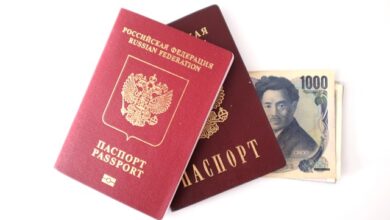French Residence Permits: Types, Costs, and Requirements

If you’re planning to live, work, study, or retire in France as a non-EU citizen, obtaining a residence permit (known as titre de séjour ) is essential. The French government offers various types of permits depending on your purpose of stay, and each has specific requirements, costs, and validity periods. Below is a comprehensive guide to help you navigate the process.
1. Types of French Residence Permits
a) Temporary Residence Permit (Carte de Séjour Temporaire )
This permit is issued for stays between 3 months and 1 year. It’s suitable for individuals who are:
- Employees or Workers: For those with a job offer or employment contract.
- Students: For those enrolled in a French educational institution.
- Family Members of EU/EEA/Swiss Citizens: For spouses, children, or dependents of EU nationals.
- Retirees or Independent Means: For individuals with sufficient financial resources to support themselves without working.
- Scientific Researchers: For researchers conducting studies in France.
- Interns: For participants in internships or professional training programs.
b) Multi-Year Residence Permit (Carte de Résident Pluriannuelle )
This permit is valid for up to 4 years and is renewable. It’s designed for long-term residents, including:
- Employees or skilled workers.
- Students who have completed their initial year of study.
- Family members of French citizens or legal residents.
c) Long-Term Resident Card (Carte de Résident )
This is a 10-year renewable permit granted to individuals who have legally resided in France for at least 5 years. It provides more stability and fewer restrictions compared to temporary permits.
d) Talent Passport (Passeport Talent )
The Talent Passport is a multi-year permit aimed at attracting highly skilled professionals, entrepreneurs, and investors. Eligible categories include:
- Highly qualified employees or executives.
- Researchers and academics.
- Artists, athletes, and cultural professionals.
- Startup founders and innovators.
- Investors contributing significantly to the French economy.
e) Student Residence Permit (Carte de Séjour Étudiant )
This permit is specifically for international students pursuing higher education in France. It allows part-time work (up to 964 hours per year).
f) Family Reunification Permit
For family members joining a legal resident or French citizen, this permit ensures the right to live and work in France.
g) Retired or Financially Independent Permit
For retirees or individuals with independent means, this permit requires proof of stable income and health insurance coverage.
h) Asylum Seeker Permit (Récépissé de Demande d’Asile )
While not a traditional residence permit, asylum seekers receive a temporary document allowing them to stay while their application is processed.
2. Costs of French Residence Permits
The fees for French residence permits vary based on the type of permit and the applicant’s circumstances. Here are some approximate costs as of 2023:
| Type of Permit | Cost (in Euros) |
|---|---|
| Temporary Residence Permit | €200–€269 |
| Multi-Year Residence Permit | €269 |
| Long-Term Resident Card | €269 |
| Talent Passport | €269–€400 |
| Student Residence Permit | €75 |
| Family Reunification Permit | Free (for spouses), €269 (other dependents) |
| Retired or Financially Independent | €269 |
Note: Fees may change annually, so it’s important to check the latest rates on the official website of the French Ministry of Interior.
3. Requirements for French Residence Permits
The requirements vary depending on the type of permit but generally include the following documents:
a) General Requirements
- Valid Passport: Must be valid for at least three months beyond the intended stay.
- Proof of Address: Rental agreement, utility bills, or a hosting certificate (attestation d’hébergement ).
- Health Insurance: Proof of comprehensive health coverage.
- Financial Resources: Evidence of sufficient funds to support yourself during your stay (e.g., bank statements, pay slips, pension statements).
- Background Check: A clean criminal record from your home country.
b) Specific Requirements by Permit Type
- For Employees/Workers:
- Employment contract or job offer letter.
- Proof of qualifications or skills relevant to the position.
- Approval from the French labor authorities (autorisation de travail ), if required.
- For Students:
- Enrollment certificate from a recognized French educational institution.
- Proof of tuition payment.
- Evidence of sufficient financial resources (approximately €615/month).
- For Retirees/Independent Means:
- Proof of regular income (e.g., pensions, investments).
- Health insurance covering all medical expenses in France.
- For Family Reunification:
- Marriage certificate or birth certificates proving familial ties.
- Proof that the sponsoring family member has adequate housing and income.
- For Talent Passport Holders:
- Proof of expertise or qualifications (e.g., diplomas, work experience).
- Supporting documents related to the specific category (e.g., business plan for entrepreneurs, research contract for scientists).
4. Application Process
Step 1: Enter France Legally
You must enter France legally (on a visa or visa waiver) before applying for a residence permit. Non-EU citizens typically need a long-stay visa (visa de long séjour ) to apply for a residence permit.
Step 2: Submit Your Application
Applications are submitted at the local prefecture (préfecture ) or sub-prefecture (sous-préfecture ) where you reside. You’ll need to schedule an appointment and provide all required documents.
Step 3: Attend an Interview
Some applicants may be required to attend an interview to verify their eligibility.
Step 4: Wait for Processing
Processing times vary but can take several weeks to months. During this period, you’ll receive a receipt (récépissé ) allowing you to stay legally in France.
Step 5: Collect Your Permit
Once approved, you’ll be notified to collect your residence permit from the prefecture.
5. Renewal and Extensions
- Most temporary permits can be renewed after one year, provided you continue to meet the requirements.
- Multi-year permits and long-term resident cards require fewer renewals but still need periodic updates.
- Always start the renewal process well before your current permit expires to avoid penalties or deportation risks.
6. Special Considerations
a) Brexit Implications
UK citizens residing in France before December 31, 2020, were eligible for a special withdrawal agreement permit (carte de séjour – accord de retrait britannique ). Those arriving after this date must follow standard non-EU procedures.
b) Language Proficiency
While not always mandatory, demonstrating basic French language skills (A2 level) can strengthen your application, especially for long-term residency.
c) Integration Contract
New residents may be required to sign an integration contract (contrat d’intégration républicaine ), which includes commitments to learn French and understand French values.
7. Tips for a Successful Application
- Prepare Thoroughly: Double-check all documents for accuracy and completeness.
- Translate Documents: Non-French documents must be translated by a certified translator.
- Seek Legal Advice: If unsure, consult an immigration lawyer or advisor.
- Stay Updated: Immigration laws and procedures can change, so regularly check official sources like the French government’s website.



